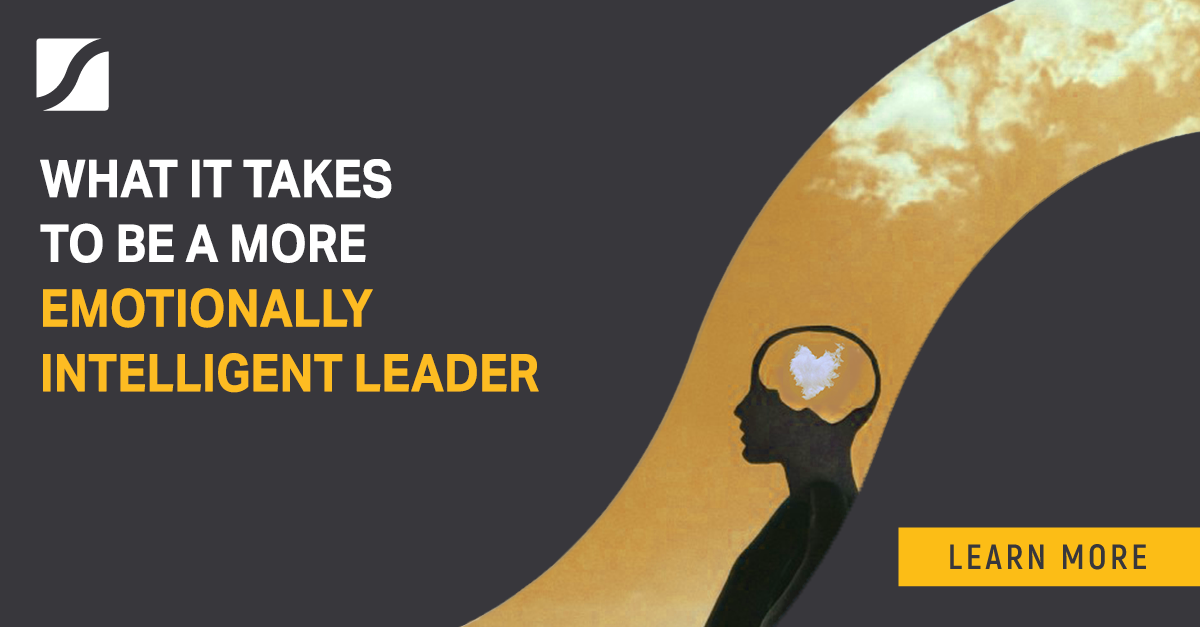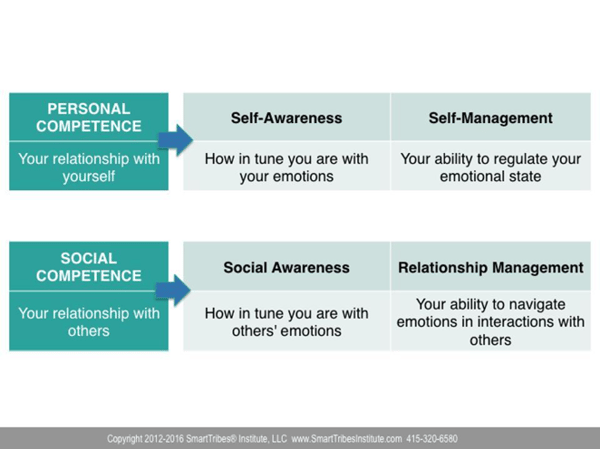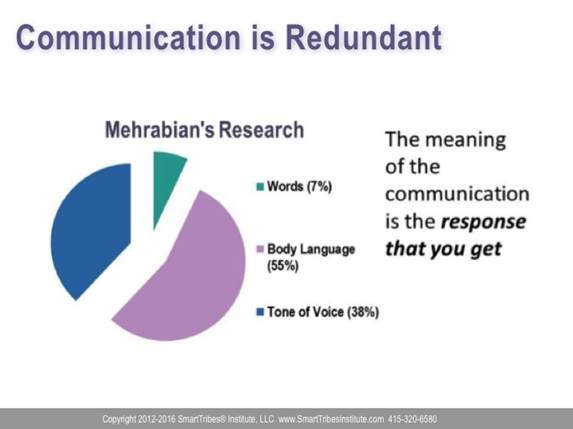What It Takes to Be A More Emotionally Intelligent Leader

When you see the words “effective leader”, what comes to your mind?
Do you see Steve Jobs presenting the first iPhone to a dark and crowded auditorium? Or maybe you see Elon Musk taking a break from his 100-hour work-week to present at a local TEDTalk.
What about the CEO of PepsiCo sitting down to hand write thank you notes to a handful of parents?
This is the idea that Indra Nooyi first came up with when she was appointed chief executive of the company back in 2006. Indra realized that parents rarely received recognition for the great work that their children did as executives in her company. So she decided to personally write them all letters.
She didn’t expect to hear back such an outpouring of appreciation.
The parents wrote back to her with gratitude. Some of her executives even told her how this was one of the best things that had ever happened to them!
By taking the time to throw out words of praise, Indra made her team feel appreciated, she made their families feel proud, and she showed the rest of PepsiCo that this is a company that appreciates the work that its people put in.
This is the emotionally intelligent leader at work.
Among the heaps of traditional resources used to describe and understand great leaders, you could pick out any number of traits and score yourself against them. There’s charisma, there’s vision, there’s decisiveness, business know-how, communication, creativity, etc. etc.
You could have a clear strategy to execute and the proper meeting rhythms to make sure everything is aligned, but poor emotional intelligence won’t help get you closer to making these goals a reality. It’s a skill that gets more and more important by the day.
What Makes Emotional Intelligence So Important For Executive Leaders?
There are a few key reasons for why emotional intelligence is becoming an increasingly valuable skill for executive leaders to exercise in their companies.
For one thing, there is a very high chance that the majority of direct reports in your company are millennials. In 2016, they became the largest generation in the labor force. And with millennials - well, they have a different perspective coming into the workforce than the generations that came before them. They are used to different communication styles, they hold different values, and they're not huge fans of leaders who hold on to outdated standards of managing people in business environments.
Another reason is the increasing complexity of the working world. Instant messaging tools, the ability to work remotely, and the general muchness of technology allow working environments to become more connected and yet messier at the same time. Leaders with a high degree of emotional intelligence bring a sense of stability and belonging to this cycle of constant change.The reduced stress allows teams to remain engaged and focused on their KPIs. As a bonus, your company culture gets the chance to grow in a more intentional and healthy way.
So how do you cultivate emotional intelligence?
Believe it or not, emotional intelligence is not an innate trait that people are just born with. It’s a skill just like any other. And building this skill takes practice just like anything else. If you want your team to feel confident in your leadership, be intentional about ingraining some key habits of emotional intelligence into your routine.
Here are four steps to become an emotionally effective leader - with some inside tips from one of our very own thought leaders: leadership and human behavior expert Christine Comaford.
As we dive in, keep this handy infographic in mind:
1. Understand your feelings and emotional state
It’s essential that you are in tune with and understand your own emotions - this is the level of Self-Awareness.
Self-Awareness is an especially important skill to cultivate in executive leadership where you are responsible for making impactful decisions and exploring opportunities to grow the business.
A side note from Christine: It’s better to understand that communication is not optional. People communicate by default so it’s basically impossible to not communicate. Even if we’re not actively saying anything, our facial expressions, body posture, and vocal styles often get the message across - whether intentional or not.
When coming up against high-stress situations, take some time to actively figure out what you are feeling. Emotionally effective leaders recognize the emotions they are experiencing and how those emotions affect themselves and the people around them. Be curious and dig within yourself to find the causes of the emotions you are experiencing.
2. So you can better manage your own emotions
Here’s a great line we heard from Christine in one of her live workshops on emotional resilience:
“If we smush our emotions down, they erupt later in a destructive behavior.”
Working through your emotions is a healthy and productive response. Ignoring them or wishing them away is not.
Now that you know how you feel, take a breather. This is the best time to unpack the situation you’ve found yourself in and think over the decisions you’d like to make moving forward. This is Self-Management.
Do some deep-breathing exercises to calm your nerves. Try to think through all the negative thoughts that come to mind and decide if it’s really fair to bring those out into the open. You want to get to a point where your reaction is not an impulsive one.
When talking about high-performing teams, Christine likes to reference the Critter State and Smart State. As humans we’re either in a Critter State (flight or flight mode) or a Smart State (all areas of the brain working smoothly together).
During this self-management stage, our goal is to move from a Critter State into a Smart State so that we can continue to make thoughtful, constructive decisions without succumbing to impulse.
3. This will help you better recognize others’ emotions
Here’s another fun line by Christine:
“Valuing a person’s emotional experience makes people a better leader.”
Now that you have given yourself the chance to respond appropriately to situations, this is the point where you can consider how others are feeling. This is Social Awareness.
Leaders with this skill are paying attention. They’re paying attention to the words, body language and even life back grounds of others around them. These leaders quickly pick up on others’ emotional needs and adjust their own approach to meet them on their level. Connecting with the people around you on deeper levels is critical to building a high-performing team.
Now that you’ve figured out your emotional state and taken the time to compose and communicate yourself, consider how others might be reacting to you and why that might be.
4. So you can work and communicate with them more effectively
Bringing all these skills together now allows you to manage your relationships more effectively to focus on the outcomes you’d like to achieve with your team. Maybe you want to move the ball forward by making others feel empowered, motivated, and engaged. Maybe you want to vent frustrations in a healthy manner that lets everyone know what page you’re on.
Whatever your goal is, you understand yourself and others well enough that you can be considered an effective communicator.
This is being really good at Relationship Management - or having strong social skills.
Adapting to and managing change, knowing how to resolve conflicts with little drama, and being able to motivate your team effectively are all habits that fall under this umbrella.
So how does an emotionally intelligent leader push a great team? You can learn more from Christine Comaford through her 40 minute learning suite for boosting employee engagement via our subscription of The Edge. Click below to learn more. Or keep reading.
The Bottom Line: Emotional Intelligence Makes You an Effective Leader
By knowing what you're feeling, being able to manage it, understanding how it affects others, and being able to navigate all this as you interact with others, you’re taking the right steps to becoming a more emotionally intelligent leader.
It’s that simple, but it takes practice.
There’s no denying that a differentiated strategy, a robust marketing engine, and plenty of funding are key drivers of growth in your company. But at the end of the day, it's your people that are executing the business and pushing it in new directions.
Humans are deeply emotional beings. That goes equally for the executive leader and the front-line employee. With emotional beings there exists a need for stability.
Political posturing, imposed change and unclear expectations all have the potential to derail this stability. Those are the kinds of things that send your people into a Critter State and hurt their productivity. The more you are in tune with the needs of your tribe, the better chance they have of helping you achieve your BHAG!
If you want your people executing at their best, give them the tools and the stability to build great things.
Supercharge Your Evolution As a Leader!
The Edge is designed for busy leaders and entrepreneurs who seek the most relevant business education to scale their companies. With The Edge, you’ll get the tools to faster results, confident execution, and a well-trained team in just 10 minutes a day!
With The Edge, you’ll get the tools to faster results, confident execution, and a well-trained team in just 10 minutes a day!
Discover how flexible and easy it is to strengthen your leadership skills today.






